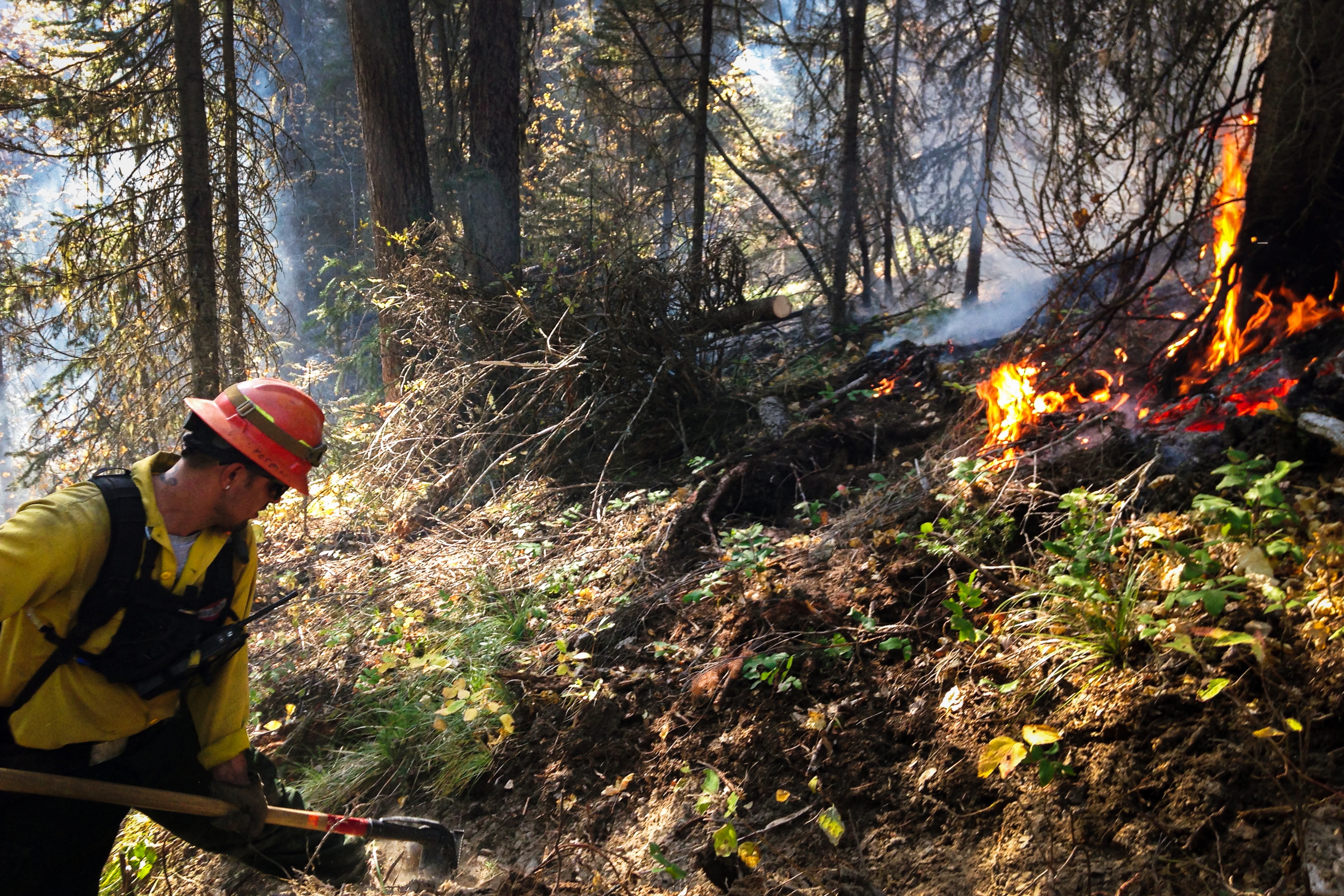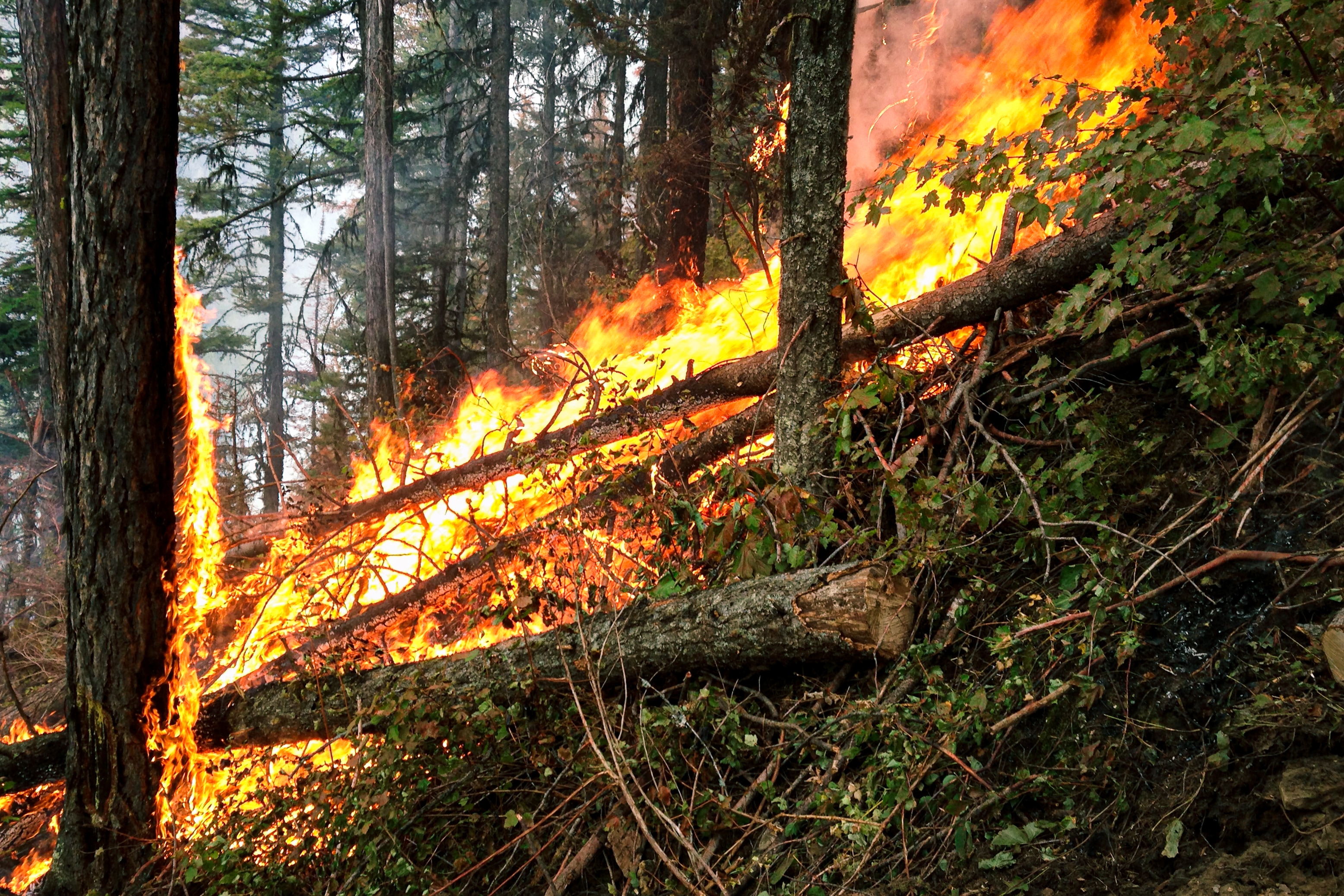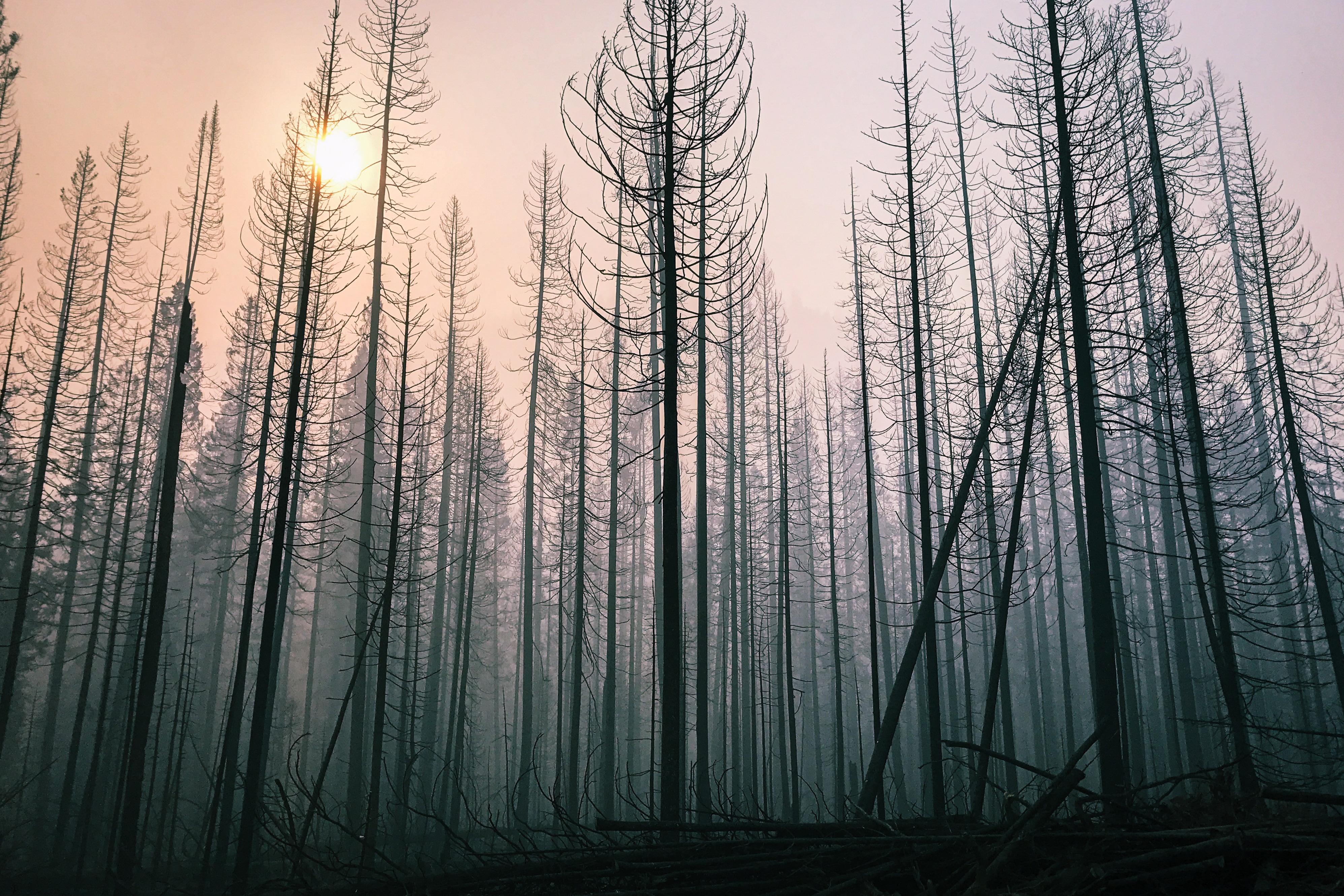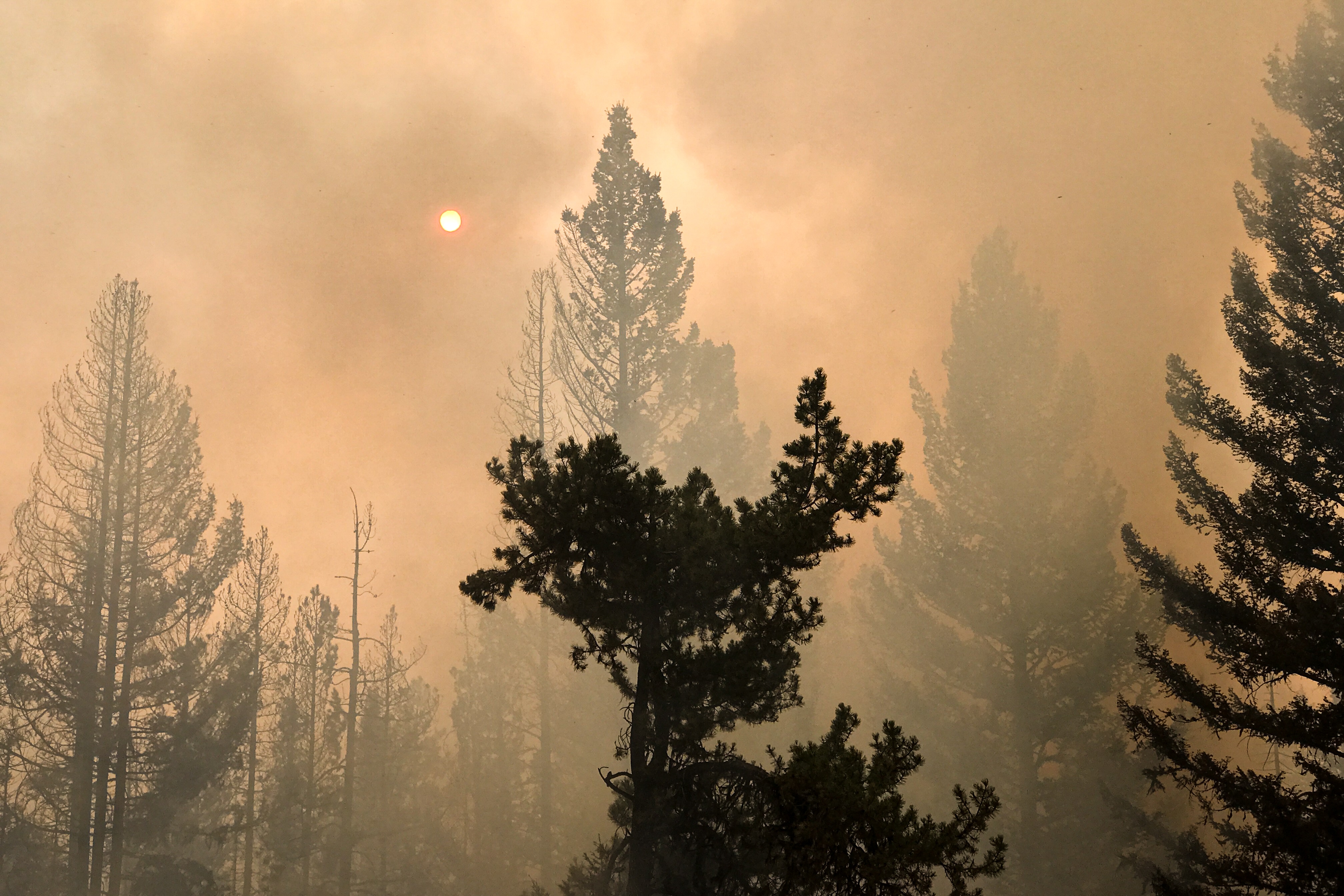- Notes
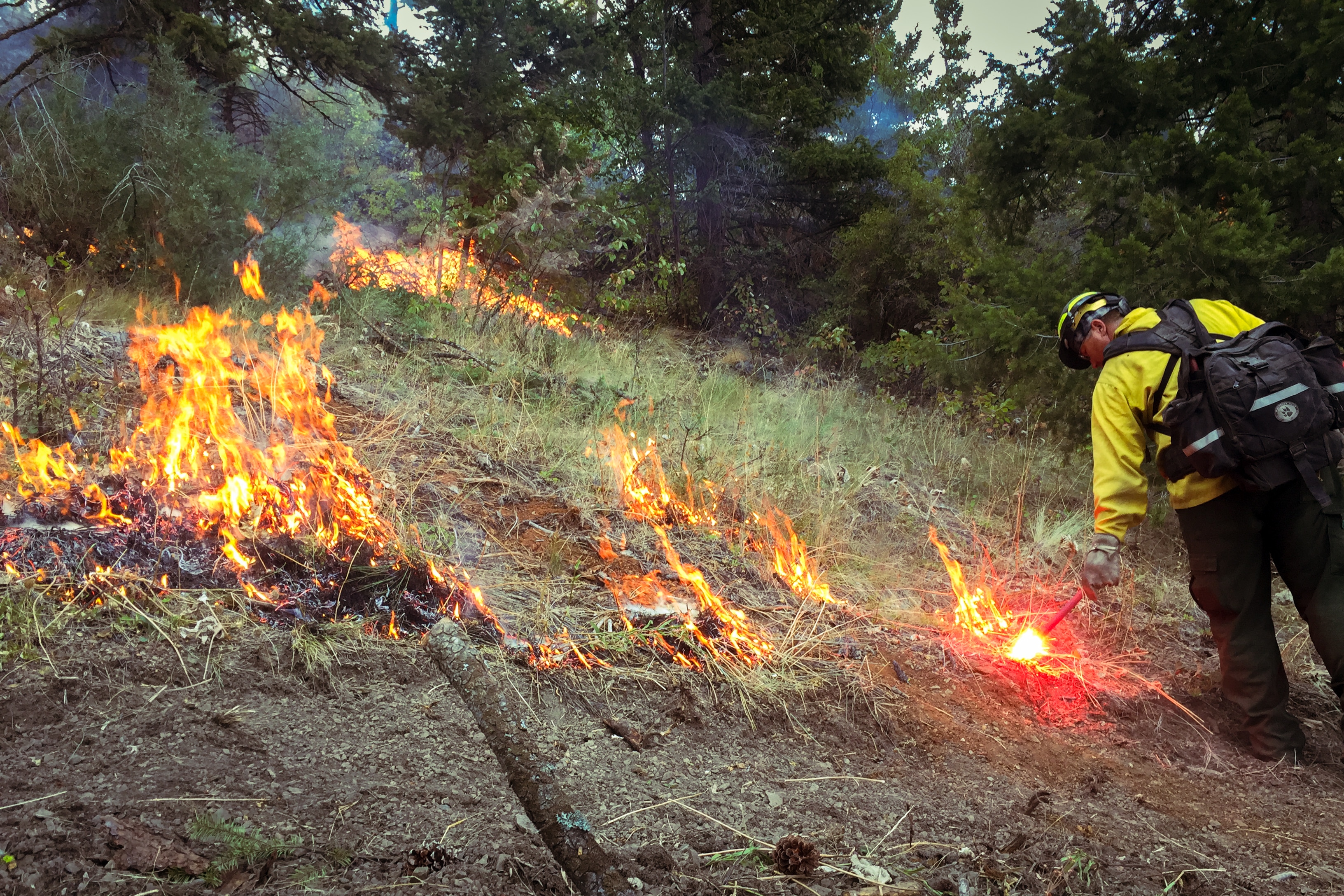
When you can’t kiss the black, whether because the fire is on inaccessible terrain or it’s raging too wildly to send firefighters to fight it or for another reason, you do the smart thing and fight the fire with more fire.
More than anything, firefighting is a team sport. On every fire I’ve ever fought, we always had helicopters flying over the fire. The pilot and co-pilot survey the fire and then relay their report to logistics; logistics drafts a plan of attack with the Incident Commander who then radios the plan to the division boss; the division boss then contacts the crew boss with the plan and their orders; the crew boss tells his crew the plan, and finally, the crew executes the plan.
Sometimes the plan means building line on a very calm and unburnt part of the forest. We build line to prepare for the controlled burn later. The purpose of the controlled burn is to cut off any potential fuel source for the yet uncontrolled fire. We dictate the size of the fire at this point, and it’s one of the funnest part of firefighting for me.
Fires are spontaneous and wild. I can only imagine the same feeling I got when I did my first controlled burn was the same one primitive man had when they finally controlled fire in prehistoric times. It’s such a rush.
What I wish modern Americans understood is that controlled burns are one of the best ways to make sure our fire seasons aren’t as bad as they have been. We can control the severity of fire season with controlled burns during the off-season. But the reason we don’t is because controlled burns, just like uncontrolled ones, produce smoke and soot. People, I guess, don’t like smoke and soot. So we don’t fight fires with fire, even though I think it’s one of the smartest things we can do as a species.
But we elected a reality television star for president, so what do I know.
